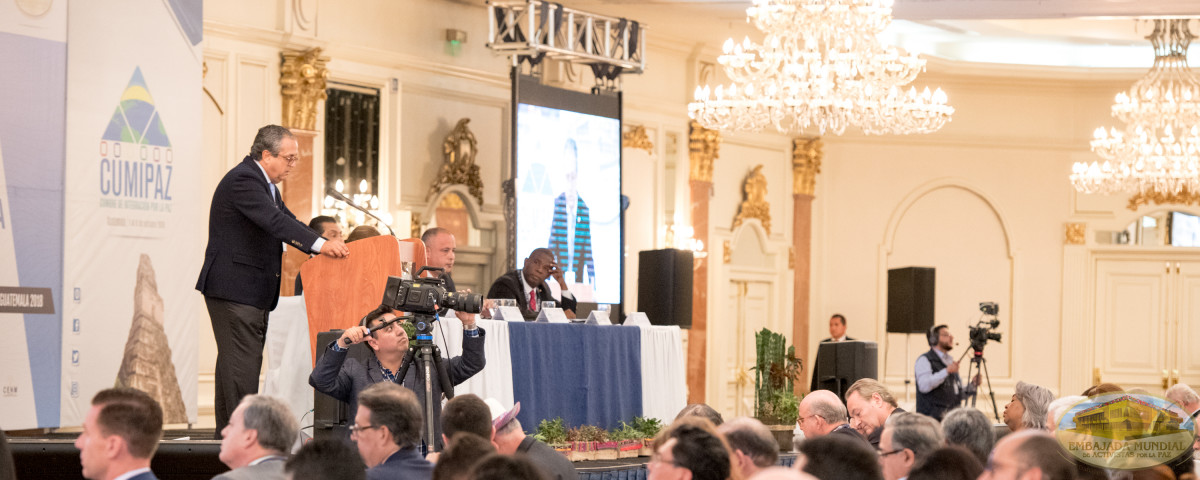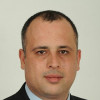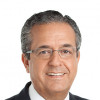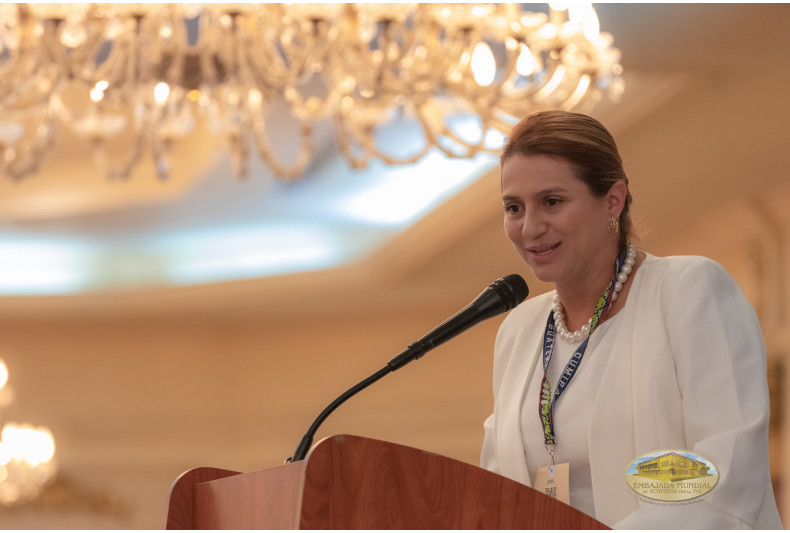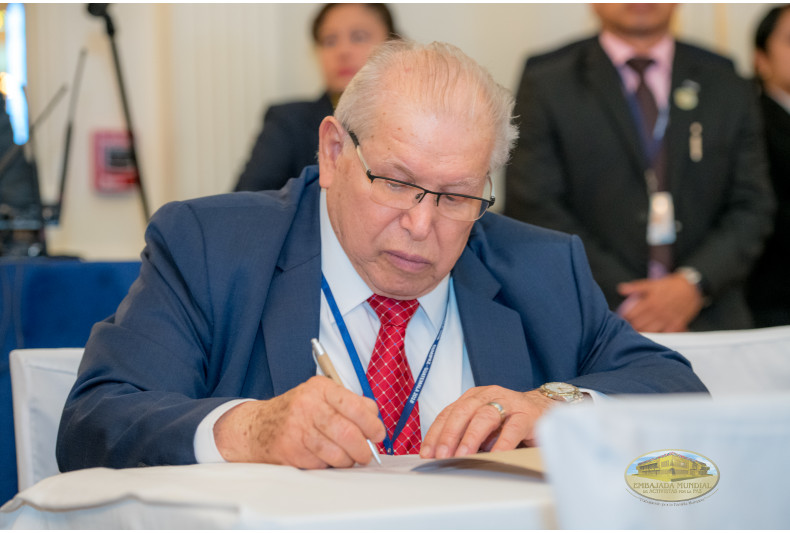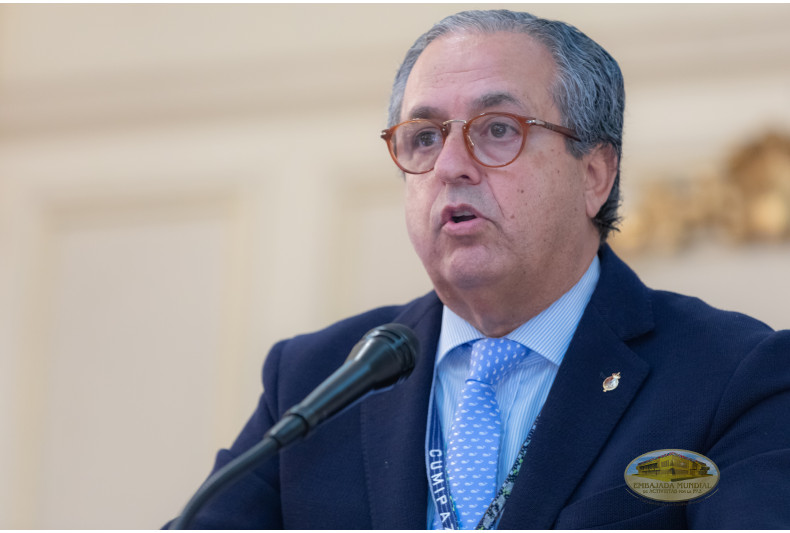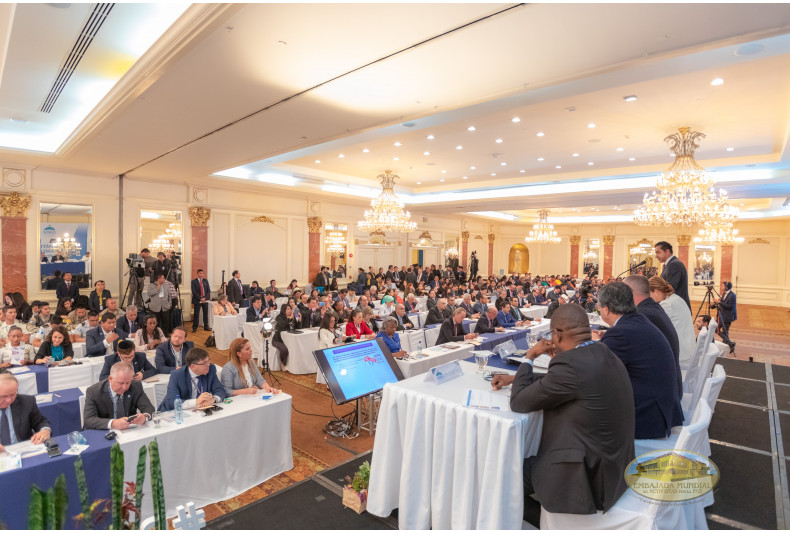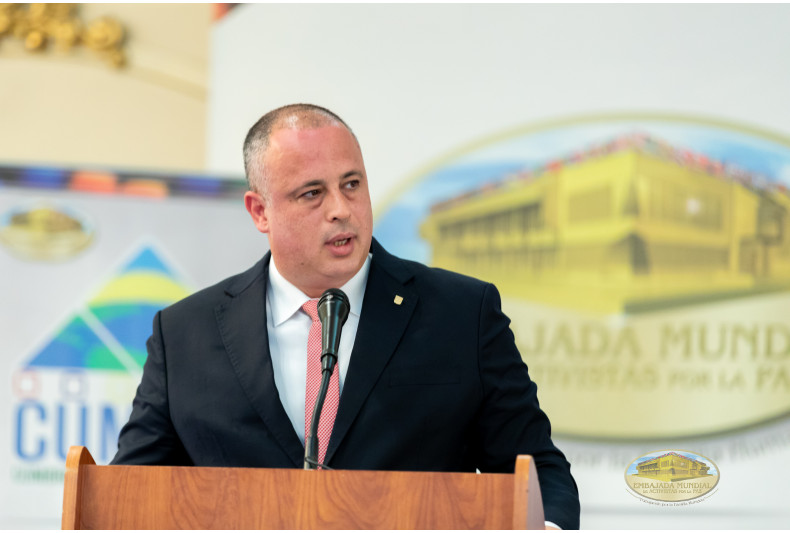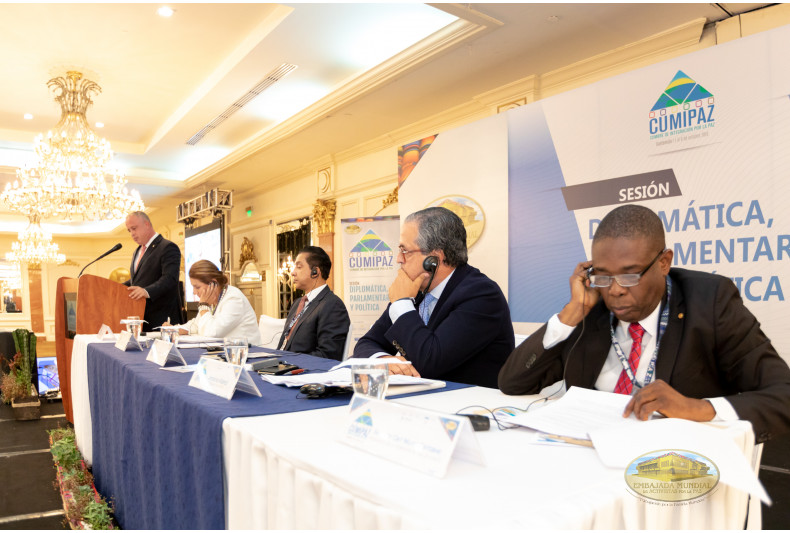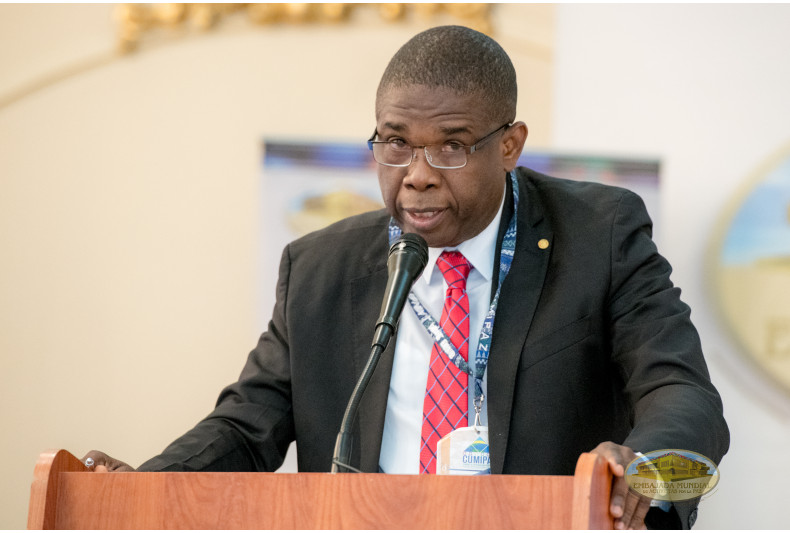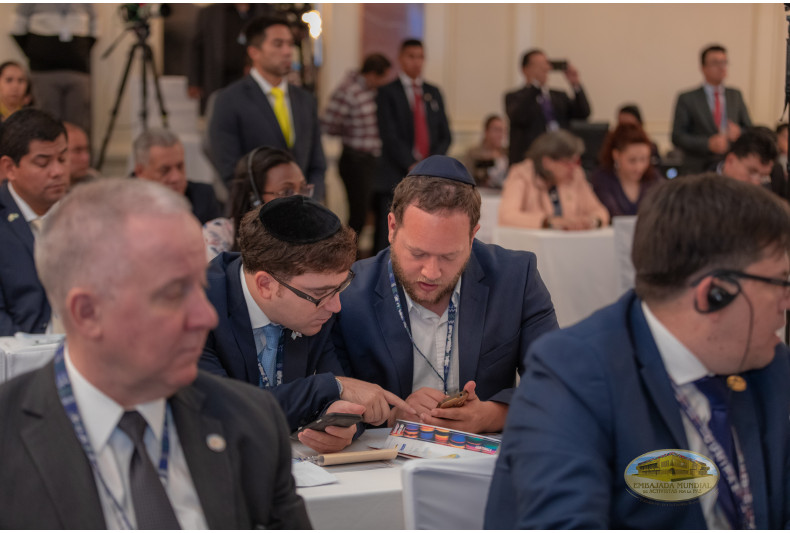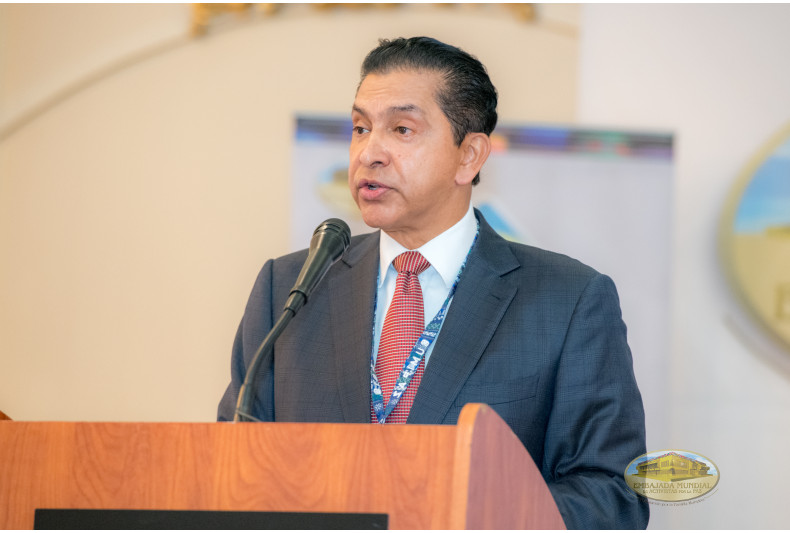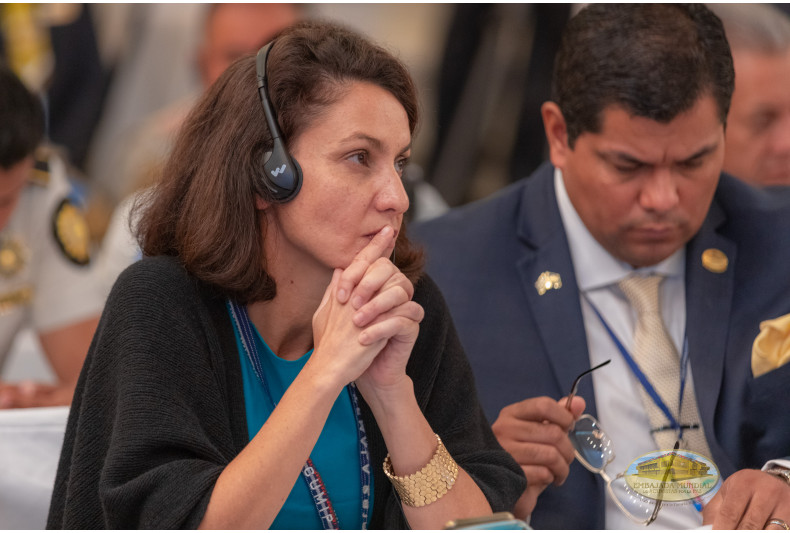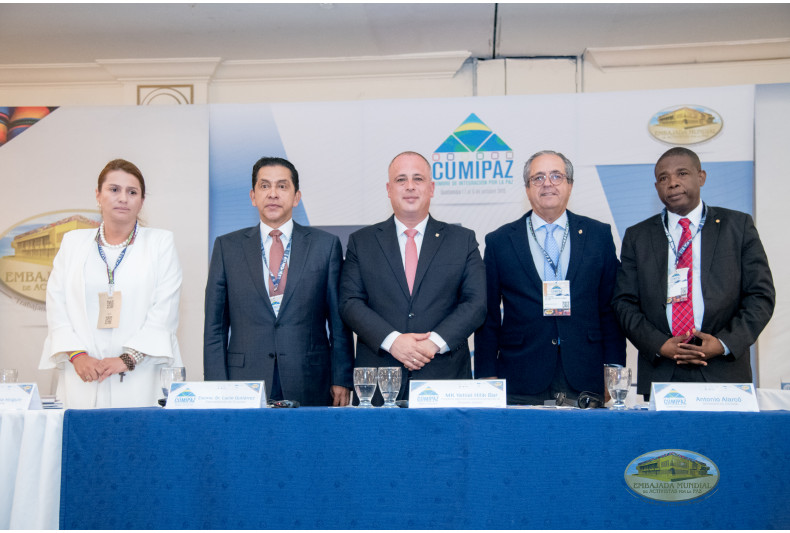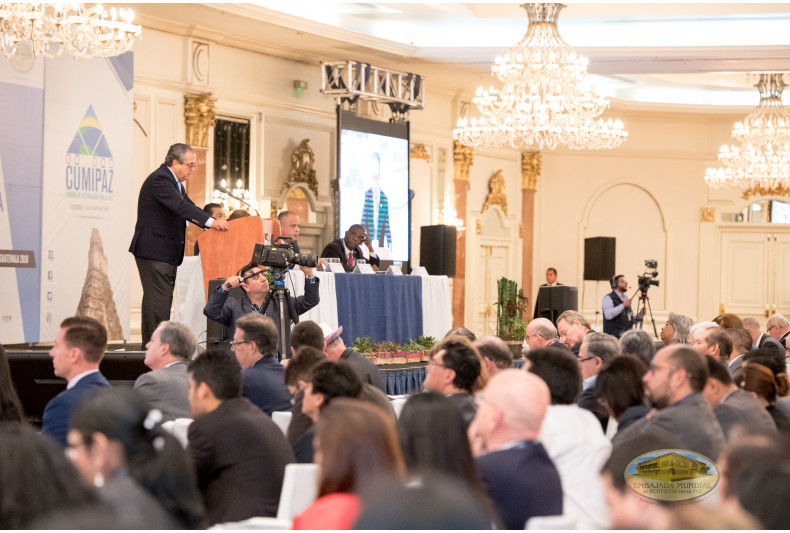Contribution of parliamentarians to guarantee Human Rights
See GalleryAt the Peace Integration Summit, CUMIPAZ Guatemala 2018, a space for discussion and dialogue was opened in the Panel: "The Role of the State as guarantor of Human Rights", in the Policy, Diplomatic and Parliamentary Session.
The segment was constituted by the former president of Ecuador, Lucio Gutiérrez; the vice president of the Knesset, MK Yehiel Hilik Bar; the president of the Senate of Haiti, Carol Murat Cantave and senator Antonio Alarcó, of Spain, all of which proposed tools of peace for the nations from the perspective of social reality.
The panel began with the intervention of the former president of Ecuador, Lucio Gutiérrez, who covered the topic: "The importance of the democratic system for the peace of nations", from a perspective that adopts peaceful means for the construction of democracy and a culture of consensus when putting tolerance into practice.
Tolerance is the virtue of democracy. Respect for others, the equality of all beliefs and opinions, the conviction that no one has the truth or the absolute reason, are the foundation of this sincerity and generosity that means being tolerant, "said Gutiérrez.
Participation of the Israeli ParIamento
The vice president of the Knesset (Parliament of Israel), MK Yehiel Hilik Bar, addressed the theme: "Democracy as a tool for the establishment of peace among nations", in which he described the current situation of Israel and Palestine.
The parliamentarian shared seven proposals that can help achieve peace in the Gaza Strip:
1. Work on conflict management policy;
2. The solution of the two States, that is, two nations, two persons;
3. The creation of a partner on either side of the conflict, because when there is no partner, responsibility is evaded;
4. A committed leadership is needed on both sides to achieve this society;
5. After the establishment of the Palestinian state, Israel will have defensive borders to guard the nation from other enemies;
6. Work to create creative momentum during negotiation, not only from the technical side and tangible things, at the borders, but also non-tangible things, such as education for peace and the creation of a culture of peace;
7. Include the regional partners, the Arab States within the peace process.
"The right thing to do between Israel and Palestine is to enter into a direct and honest process of negotiations. Peace cannot be forced in any unilateral way; the peace of Israel and Palestine can be a reality through courageous and profound negotiation, "said Hilik.
The speaker of the Israeli Parliament closed his speech emphasizing:
"Peace is not a luxury, it is a necessity, it is our duty and obligation to humanity."
Haitian Health Commission
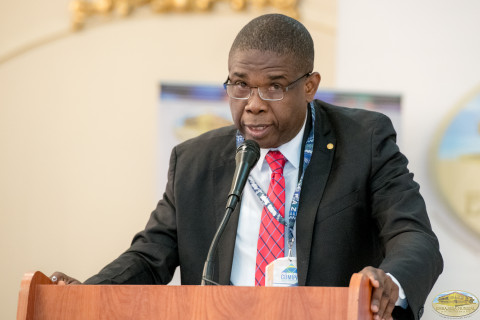
"Today the world entrusts its destiny to the heads of state through a social contract; Through that contract, they grant leaders the right to direct them, to administer the State in exchange for their welfare. "
The senator discusses the mission of applying justice in the States, ensure security, tranquility of their populations, promote human rights and the responsibility of their leaders, fulfilling the mandates that fall to any leader and head of state.
"Duty to serve, duty of ethics and morals, duty to transparency, duty to protect, duty to respect and enforce the law, duty to speak the truth, duty to preserve pride, honor, dignity of States, duty to work for the greatness of all States, duty to inspire confidence in their populations, duty to work with their welfare in the areas of health, education, food self-sufficiency, environment, justice and housing.
Spain proposes the right to public health
The Spanish senator, Antonio Alarcó, was present at the panel with a presentation entitled "Health as a human right that contributes to peace and happiness in the world." In his participation he suggested the revision of point 22 of the Declaration of Human Rights to support the establishment of health as a right and not as social security.
Why health should be a right?
"First because it is a right, which has to be better embodied in fundamental rights, but the truth is that only 20% of the world's population has the right to health, it is not possible that we do not make a profound reactivation of achieving health as such ", added Antonio Alarcó
The panelist ended his participation stating that he must achieve universal public health: "it is not a utopia, it is an objective necessity of this world, it is an objective necessity of Democracy, it is not a fashion" Senator Alarcó.
Panel conclusions
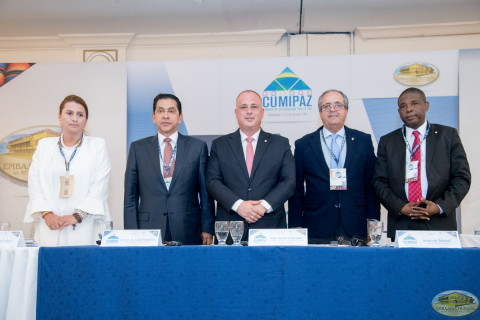
Holguin, summarized the panel which yielded seven conclusions:
1. Strengthening of powers and division of powers, strengthening of parties and leaders, hopefully under the proposal made by Dr. Soto, the responsibility to protect while understanding that it is prevention, intervention and reconstruction, education of the culture of peace and strengthening of the democratic charter;
2. The need to move from the management of conflicts to the solution of them, the importance of understanding that solutions are given between two states so that they can work in the long term;
3. The need to respect the different generations of human rights through the guarantee of those rights;
4. Work in health, education, food self-sufficiency, the growth of national production, the need we have for states that seek the common good and that fight against corruption for transparency;
5. The need to understand that the interdependence between human beings and States requires an ethical interaction of conscience and intellect;
6. A call was made to change Article 22 of the Declaration of Human Rights to move from social security to health as a fundamental right;
7. The performance of the sustainable development objectives proposed by the WHO.
